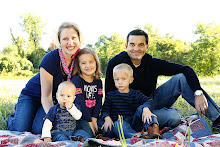My longtime friend, Mark Spence, recently wrote a blogpost I'd like to share called "Internally Strong, Externally Focused." This is posted with his permission. Enjoy:
In the book, The Externally Focused Church by two pastor-theologians, Rick Rusaw and Eric Swanson, coined the phrase “externally focused” that defines a church that equips, empowers and encourages church members to be missionaries to their community, particularly through service. Before going deeper into how a church can be internally strong and externally focused, I would like to take a brief look at other types of churches that maybe aren’t as interested in practicing both internal strength and cultivating an external focus.
Internally
strong, internally focused
An
internally strong and internally focused church is mainly interested in
itself. This is a program heavy church with a full church calendar.
The goal is to keep members busy and to attract new members by offering as many
events, ministries, programs, etc. as possible.
A
sign that a church is internally focused is that although it may be adding new
members every month, the new members join by transfer from other
churches. This type of church may baptize many each year as well but it
is likely that the baptisms are of members’ children. So the church may
seem evangelistic due to its new members and baptisms, but in reality, it is
not reaching non-Christians outside of the walls of the church campus.
This
type of church is more of a Christian country club than it is a church on
mission with the gospel of Jesus Christ.
Internally
weak, externally focused
An
externally focused but internally weak church is outstanding at
evangelism. This type of church attracts a huge crowd at weekend services
and consistently witnesses many adults, students and kids come to saving faith
in Christ. The majority of the church’s time and resources are poured
into making the worship services as exciting, creative and attractive to the
lost as possible. Using a tired cliche, this type of church is a
seeker-oriented or seeker-friendly church.
Because
the focus is on the worship services, an internally weak church has a huge
“back door”. Meaning that while it sees many new Christians come to
faith, it also sees many members looking for a church that offers more depth in
discipleship. The disciple making ministries, such as small groups, are
an afterthought of an internally weak church.
Internally
weak, externally unfocused
An
internally weak and externally unfocused church is an unhealthy church heading
towards closing its doors. The age of the church members tends to be
older, with little interest in doing what it takes to reach new people with the
gospel. While the church may have small groups and other discipleship
ministries, the small groups have not added new members in recent memory.
Unfortunately, the baptistry is dry with members unable to remember the last
time it was used.
The
scariest aspect of this type of church is that far too many churches in America
are both internally weak and externally unfocused; too many churches in America
are more likely to close their doors within the next generation than they are
to reach people with the gospel.
Internally
strong, externally focused
Externally
focused churches encourage members and leaders to become involved in the
community. Service, outside the walls of the church campus, encourages members
to build relationships with the unchurched. As relationships are
developed through community involvement, hearts will be opened to the gospel.
Service allows Christians to be the salt and light that Christ has called them
to be.
Church
members can discern where to serve through their personal interests and
proclivities. For my family, this means that I coach my boys’ soccer
team. For others, it can mean active engagement in scouting, service
organizations like Lions Club, dance troupes, bands, sports at all levels and
ages, PTA, biker gangs, gaming (video game)…things…, etc. The sky is the
limit and creativity should be encouraged.
Community
engagement and service, when done with intentionality for the gospel, has great
potential for the church to the unchurched with good news of Jesus Christ.
An
externally focused church will have fewer activities and events. Some
events, such as Fall Festival, may have to be sacrificed in order to free
church members towards externally engagement. Ministries, such as upwards
sports, may also have to be given up so that a church member can enlist their
children in a local sports league and for parents to help lead the team.
Even
though there should be fewer ministries and a cleaner calendar, the church will
have to prioritize disciple-making ministries in order to be internally
strong. When someone is lead to Christ through community engagement,
there has to be a process in place through the church to help the new
Christians to reach spiritual maturity.
In
addition to a strong disciple making process, the worship service will have to
be engaging, sermons will need to exposit the scriptures faithfully, small
groups must be a place for fellowship, community and accountability, the
pastors will have to take their responsibility to shepherd the church seriously
and the church must have a means to equip church members to share the
gospel. In short, the church must be internally strong in order to
fulfill the great commission’s command to reach people with the gospel and
disciple them.
Also, pray for Mark today (9/25/14), he is having knee surgery.


























